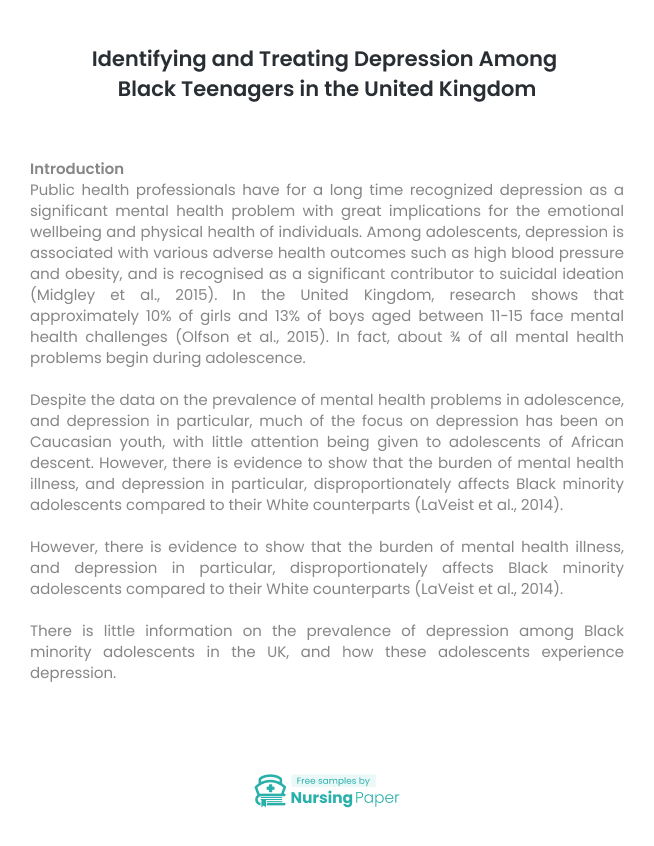1. Hoare, E., Skouteris, H., Fuller‐Tyszkiewicz, M., Millar, L. and Allender, S., 2014. Associations between obesogenic risk factors and depression among adolescents: a systematic review. Obesity reviews, 15(1), pp.40-51.
2. Midgley, N., Parkinson, S., Holmes, J., Stapley, E., Eatough, V. and Target, M., 2015. Beyond a diagnosis: the experience of depression among clinically-referred adolescents. Journal of adolescence, 44, pp.269-279.
3. Olfson, M., Druss, B.G. and Marcus, S.C., 2015. Trends in mental health care among children and adolescents. New England Journal of Medicine, 372(21), pp.2029-2038.
4. Khatib, Y., Bhui, K. and Stansfeld, S.A., 2013. Does social support protect against depression & psychological distress? Findings from the RELACHS study of East London adolescents. Journal of adolescence, 36(2), pp.393-402.
5. LaVeist, T.A., Thorpe, R.J., Pierre, G., Mance, G.A. and Williams, D.R., 2014. The relationships among vigilant coping style, race, and depression. Journal of Social Issues, 70(2), pp.241-255.
6. The Sainsbury Centre for Mental Health. (2002). Breaking the Circles of Fear: A Review of the Relationship Between Mental Health Services and African and Caribbean Communities.
7. Her Majesty’s Government/Department of Health. (2011). No Health Without Mental Health: A CrossGovernment Mental Health Outcomes Strategy for People of All Ages
8. Sewell H. (2012). Equality Act 2010 in Mental Health: A Guide to Implementation and Issues for Practice. United Kingdom: Jessica Kingsley Publishers. 1-256.

The download will start shortly.






 Subject:
Subject:
 Number of pages: 4
Number of pages: 4